In order to experience life as expats in Riyadh, we rented a place in a so-called compound – a walled neighborhood which gives expat residents a feeling of safety and allows them to experience more cultural freedom than on the conservative streets outside.
As nomad investors, we take Ubers to and from our meetings. The first night we returned to the compound, we were informed by the portly guard at the security booth that Ubers are strictly prohibited from entering. Despite explaining that we lived a 15-minute walk from the entrance, he wouldn’t budge.
Determined to win over the guard, we went home and opened Dale Carnegie’s How to Win Friends and Influence People, and reviewed our notes from our Wharton MBA negotiations course taught by Stuart Diamond.
The first week, we “made emotional payments” by smiling, listening carefully, and repeating his name several times. However, the gatekeeper had no emotions and the car wasn’t let in.
During the second week, we “built relationships of trust” by learning about his family and making personal connections. But the guard didn't trust us and we still walked.
In the third week, we attempted to “trade items of unequal value” by offering the large man our leftover kale quinoa salad. He didn’t take the bait.
One night during our final week in the country, we arrived to find the compound’s outer wall torn down and the security booth dismantled. Apparently, we won the negotiation.
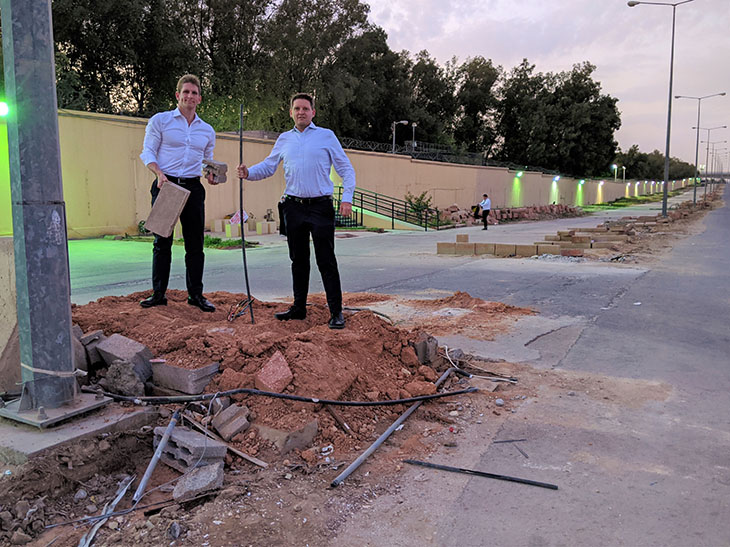 Ivan Nechunaev and Burton Flynn standing where the compound security booth stood earlier in the day before the wall was demolished
Ivan Nechunaev and Burton Flynn standing where the compound security booth stood earlier in the day before the wall was demolished
All in all, it was all just bricks in the wall
The removal of compound walls, it turned out, was done by decree of the government head in order to showcase the country’s improved security situation. This wasn’t the only recent change we personally experienced during our month-long stay in the country.
Our families were able to enter the country on the recently introduced tourist visas which were issued online in minutes. We didn’t have to worry about being harassed by religious police which had recently been dismantled. Our wives were allowed to drive a rental car during our weekend road trip, could travel without our consent, and were not required by law to wear black robe-like “abayas” meant to cover women’s whole bodies (though most expat women still wear them). We were allowed to enter shopping malls and didn’t have to use the “single men” entrance and segregated section of restaurants when not accompanied by our wives. And we were able to go to the cinemas which have recently been allowed (though tickets were hard to get as many shows are sold out days or even weeks in advance due to pent-up demand).
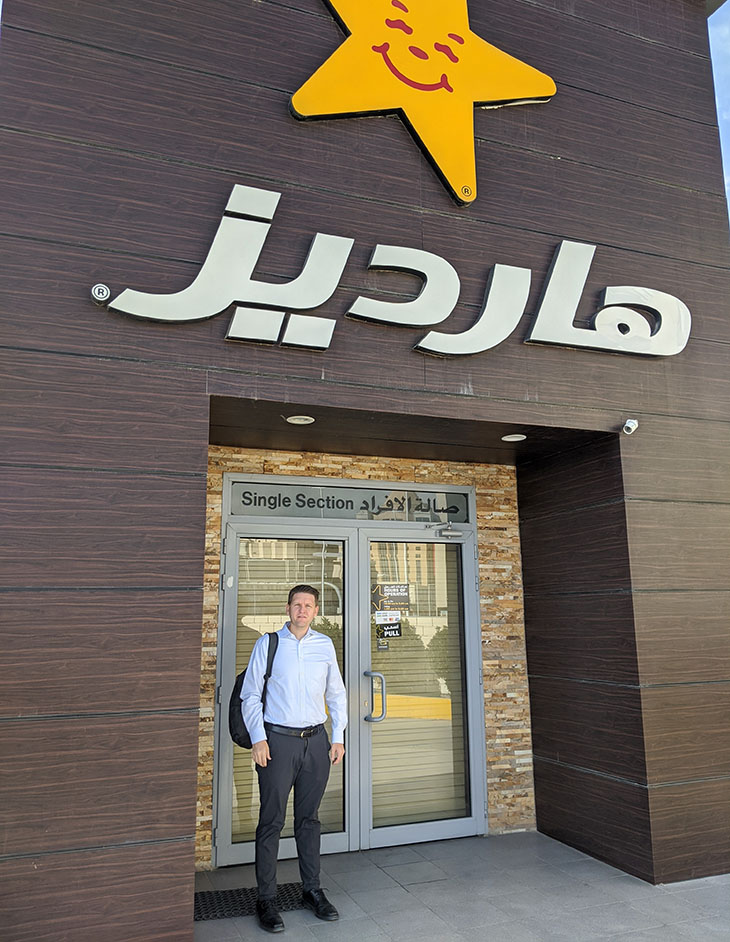 At the now-shut singles’ entrance of a local restaurant
At the now-shut singles’ entrance of a local restaurant
A shopping mall operator we found strongly benefits from these changes. Their malls have seen increased foot traffic in the last few quarters, and earnings have been growing. Furthermore, they plan to open 18 cinemas in the next 1.5 years. We visited several of their malls and witnessed the busyness ourselves. On our last day in the country, we coincidentally ran into an architect from a global engineering firm who had just moved to our compound from Canada on a long-term contract to build cinemas for this company.
Although we always ask for a meeting with the CEO, it can be a good sign when the chief executive is focused on running the business and delegates investor meetings to another competent executive. This company’s head of IR is one of the best we’ve met. Rather than regurgitating facts from the company’s annual report like many others do, he deeply understands the business and articulates the company’s position even better than some CEOs. Having recently joined, he is currently focused on establishing an advanced ESG policy and making tangible improvements necessary to get his company into a sustainability index.
When we asked our friendly network about this company, we learned that the IR was referred to the chairman by an active shareholder who was aware of his exceptional talent from another company in which he used to be invested. Additionally, in the words of several friendly sources, the company’s CEO is known as a “strong executor”, while the chairman is “very colorful” and a “true visionary.”
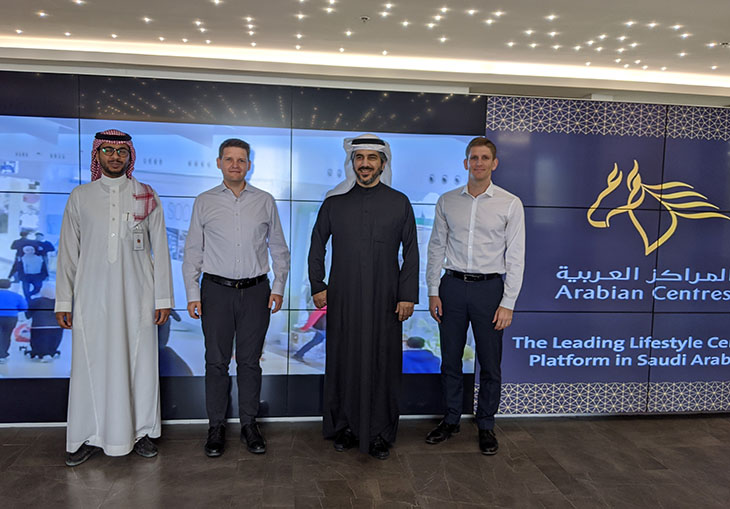 Meeting with a €4b mall operator
Meeting with a €4b mall operator
Cutting out the middleman
On our past trips to Saudi, the broker who arranged meetings on our behalf was able to secure only a small fraction of the company meetings we requested. CEOs and heads of regulators were out of the question. Because of a couple of bad experiences we had with brokers last year, we started reaching out directly to companies to schedule meetings on our own. We were therefore quite surprised to arrange meetings with 75 listed companies (over half of which were with CEOs) in Riyadh, Jeddah, and Dammam.
Additionally, we met with the central bank’s heads of research and monetary policy and a senior executive of the general investment authority, visited the finance ministry, toured numerous factories, spent time conversing with locals on the streets, shook hands with a Saudi prince (one of about 7,000 of them), and engaged with over a dozen local contacts from our business school network that included influential families, the leading regional investment banker, and a successful hedge fund manager.
The only help we ended up asking of our broker on this trip was to arrange meetings with the stock exchange and securities regulator. The broker responded by telling us that such Saudi government agencies are normally “unresponsive” so getting these meetings was unlikely. Given that brokers have a natural relationship with the stock exchange, we asked if they could at least get us a meeting with the president of the stock exchange. Their response: “Sorry to say I think that will be a difficult one to swing. As far as I’m aware the head of the stock exchange doesn’t take meetings with foreign investors. I’ll give you a call tomorrow when I’m back in the office.” We haven’t heard from them since. However, we were able to get the meeting by sending a simple LinkedIn message to a senior advisor to the stock exchange president.
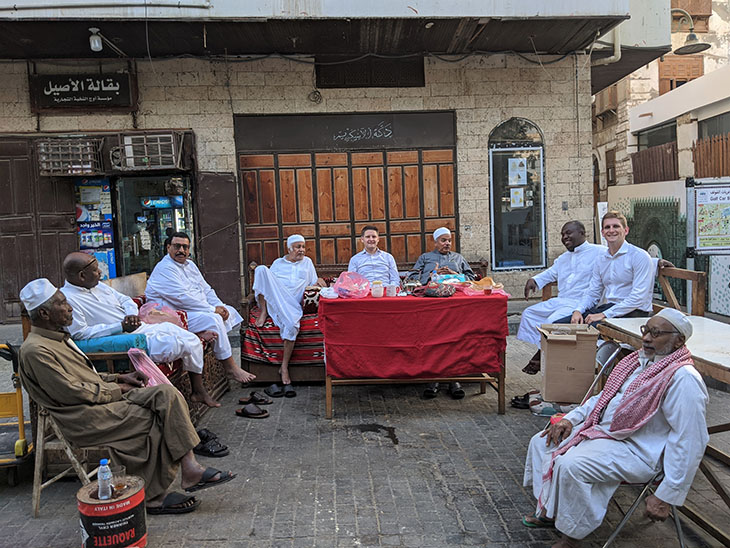 Conversing with locals on the Arab street in between meetings in Jeddah
Conversing with locals on the Arab street in between meetings in Jeddah
Engaging with the stock exchange
We learned from the president that the exchange has been doing a lot to open the market to foreign investors, that the Aramco IPO was very important to prove that the Saudi market offers a large and resilient investment platform, and that they recently joined the UN Sustainable Stock Exchanges initiative. They also shared that they are currently working on enhancing their ESG action plan. In fact, the president told us that he was scheduled to receive an update from his ESG task force later that day.
Given our global ESG perspective from meeting with stock exchanges and regulators in many markets, the president requested that we meet with the head of his special ESG committee at the end of our trip to provide our assessment of Saudi companies’ ESG practices and share recommendations on how the stock exchange can effect positive ESG change.
In this additional meeting, we provided our observations that while the majority of local companies didn’t know the ESG acronym, almost every firm was eager to learn more and engage with us. We shared our view that providing frameworks, guidance, and education would be the most appropriate steps to raise awareness among companies, and we offered to share ESG data we’ve collected from dozens of companies in Saudi and hundreds of companies in other emerging markets in order to help them benchmark and better understand which sustainability improvement initiatives should be prioritized. In response to their plans to create a sustainability index, we expressed our hope that they apply a truly rigorous ESG assessment instead of making the questionable foray into including nearly all companies on the list as we’ve seen other exchanges do.
Of course, the stock exchange still has long ways to go to educate local companies on the benefits of ESG. For example, in response to our question about his company’s ESG policy, the CFO of a €800m pharma company said: “I’m a financial guy. I don’t care about the environment. I only care about the numbers. I mean, that’s expected.”
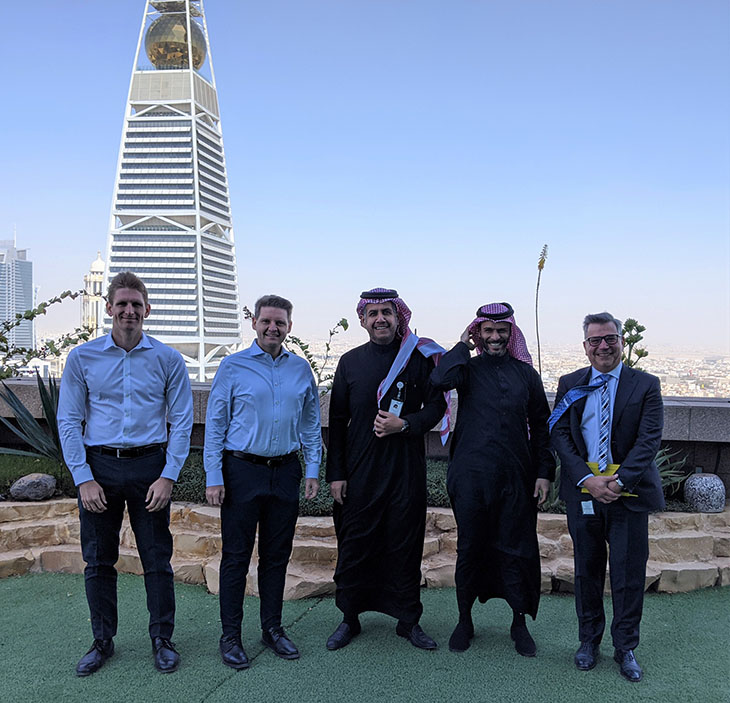 Meeting with the president of the Saudi stock exchange (picture taken outside the office in a windy 3°C weather)
Meeting with the president of the Saudi stock exchange (picture taken outside the office in a windy 3°C weather)
The pragmatic regulator
During our month in the country, we heard many times from the companies’ CEOs we met that the financial industry regulator imposes very strict rules and regulations on listed businesses. However, unlike in some countries where companies complain about the regulator, Saudi market participants seemed to respect and even admire theirs. To understand where this admiration stems from, as well as to learn what actions the regulator undertakes to ensure discipline in the market, we met with their chairman (the meeting was secured via a simple WhatsApp message from the stock exchange president).
What we found was a pragmatic approach to governance and sustainability initiatives. When initiating changes, they ask: “Will there be any benefit or impact, or are we just making companies’ lives harder?” In contrast with regulators in other markets which are often trigger-happy when it comes to creating new burdensome requirements that may or may not actually benefit market participants, this regulator – who is concerned about the whole host of competing ESG reporting frameworks which differ dramatically in terms of scope, measurement, and weight – prefers to build awareness of the benefits of advanced sustainability practices for now until a universal standard emerges.
Saudi Arabia’s impressive 3rd place ranking (out of 190 countries worldwide) in Protecting Minority Investors component of the World Bank’s Ease of Doing Business ranking is a testament to the effectiveness and innovativeness of the regulator’s actions to improve governance standards. For example, recently a mandatory corporate governance code was passed, and Saudi became the first country in the world to mandate that publicly listed companies offer electronic voting. Insider trading and information leakage concerns are also taken very seriously. In line with their pragmatic approach, the regulator collaborated with academics to run a multi-year study on market reactions to earnings announcements which found that the imposed regulations achieved the intended outcome as reactions to earnings announcements became much stronger, meaning that the market is in fact surprised by information which it should not have had access to previously.
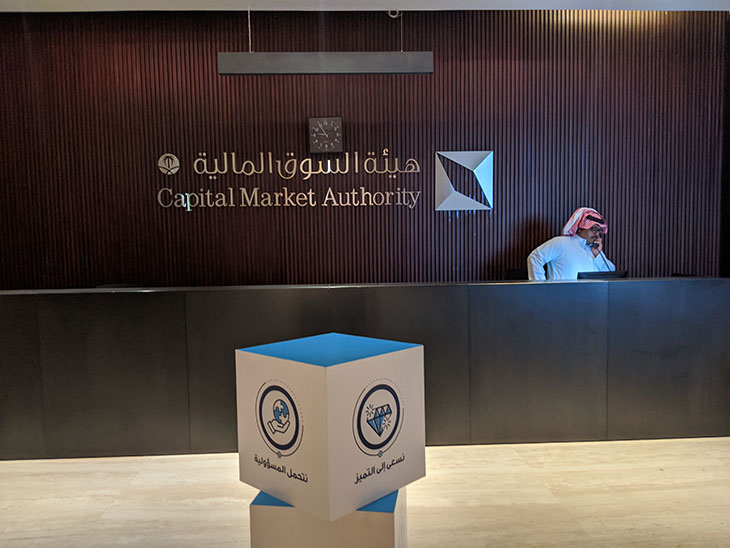 Reception of the capital markets regulator
Reception of the capital markets regulator
Cleaning toilets by example
Of the 43 CEOs we met in Saudi Arabia, some were very special characters that deserve our recognition. The CEO of a €400m motor and health insurance company impressed us with how non-promotional he was. He rarely meets with investors because he says he would rather spend his time “getting it right” for the shareholders. The approach seems to be paying off: the company has grown its earnings at over 25% per year over the past five years while many other companies in the industry are going out of business. We lucked out to get this meeting only because the CEO was interested to hear the feedback Finnish investors may have for his company – but it had to be at 7:30am (highly unusual for Saudi) in order not to detract from his work activities.
The chairman of the largest books and consumer electronics retailer in the country told us that he comes from a small village where most of the newborns wouldn’t survive due to malnutrition. He was a late bloomer: while he didn’t succeed in high school, he did better at the country’s best university and then received a scholarship to study engineering at Berkeley. After coming back, he started the business from scratch, which has grown to its current €5b valuation. Remembering where they come from, the chairman and his younger brother who is now the CEO still keep the first cash machine in the office and have a conference room named after their first employee.
The CEO of a €300m auto insurer shared with us that he grew up poor and his university education was funded through a stipend he received from his mentor in exchange for apprenticeship work at the mentor’s business. Giving back, he now donates 50% of his income to communities in India, his home country, and prefers a leadership-by-example approach to management: once the employees spotted him cleaning the toilet in the office.
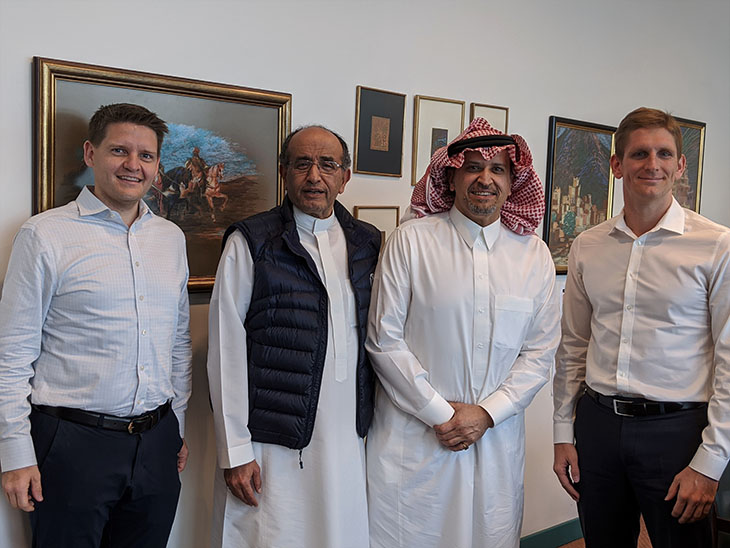 Meeting with the chairman and CEO of a €5b books and consumer electronics distributor
Meeting with the chairman and CEO of a €5b books and consumer electronics distributor
We also had a couple of curious CEO encounters. A €1.5b cement company’s CEO told us that his company will become the first fully digitized cement company in the world. When we asked what that means, he responded that time will tell.
A CEO of a real estate investment trust abruptly ended the meeting halfway through – he read our meeting request email quickly and accepted thinking that we were potential clients.
And the CEO of a €100m agricultural company outright refused to answer any of our two dozen questions during the meeting, saying “I don’t know” in response to each one. However, after this record-short meeting he invited us to lunch at an expensive steakhouse. We politely declined as we didn’t want to waste shareholders’ money of this already suffering business whose earnings have been negative for the past five years.
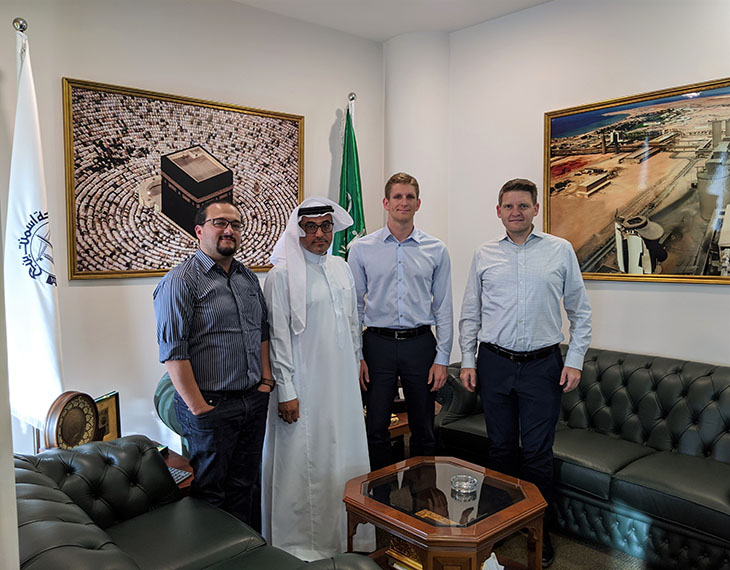 Meeting with the CEO of a €1.5b company that plans to become world’s first fully digitized cement business
Meeting with the CEO of a €1.5b company that plans to become world’s first fully digitized cement business
Taking a train to see the largest company in the world
After taking a 4-hour high-speed train cutting through the desert from Riyadh to Dammam, we were honored to be the first investors to meet one-on-one with the world's largest publicly traded company since its IPO a month prior. Worth a mere €1,700,000,000,000, this company’s listing not only quadrupled the size of Saudi Arabia’s total market cap, it also increased the combined market capitalization of our entire investable universe by over 50%. To further put things in perspective, it is 28,000 times larger than the smallest company we saw on this trip.
In addition to being the largest company, this firm also holds the record for emitting more carbon dioxide into our planet in the last 50 years than any other business in the world. Their CEO and chairman had attended the World Economic Forum held in Davos just two weeks prior to our visit, and they were reportedly surprised by the amount of oil shaming that took place. We were surprised that they were surprised.
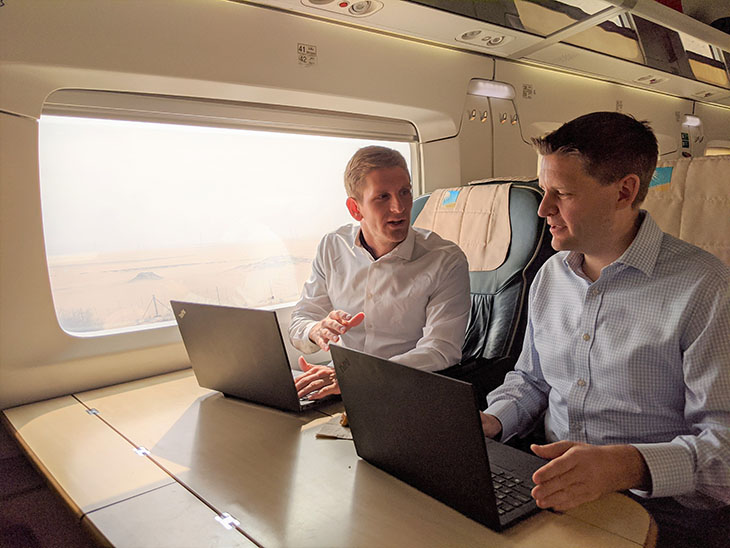
Working in the middle of the desert on a train from Riyadh to Dammam
We ask every company we meet if there are any ways in which climate change or the transition to a low carbon economy pose any sort of financial risks to the business. This company acknowledged that environmental laws being passed in many countries limit the amount of carbon which can be emitted at the point of consumption. They proudly stated that they are in a unique position as the only oil company in the world with the ability to convert fossil fuels to hydrogen at a single point of production. As a result, all their greenhouse gasses could in theory be emitted in Saudi Arabia while the resulting exported hydrogen would produce no emissions in the countries of consumption. While this might temporarily mitigate financial risk, we viewed this as an unsustainable loophole.
Interestingly, the company claims to have had some of the most progressive governance standards (including quarterly reporting) for over 60 years prior to its IPO – they even offered to show us the original reports from 1950s. Coming from an engineering background, the company – where 80% of managers are engineers – is incredibly disciplined and instills a sense of compliance into their staff: if an employee parks on a white line they will get a ticket, and their boss will find out about it.
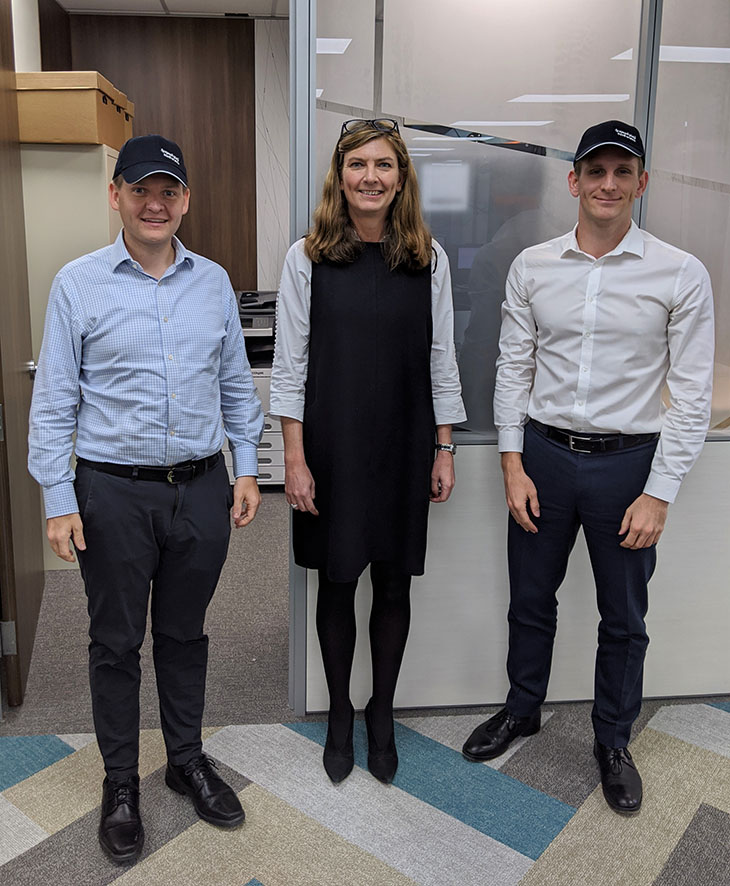 Meeting with the head of international investor relations of the largest company in the world
Meeting with the head of international investor relations of the largest company in the world
The changes happening in Saudi Arabia as part of the government’s “Vision 2030” mobilization are promising. However, despite the progress we personally witnessed, the economy still has several major challenges which will take time to work through.
First, the country is still massively dependent on oil. Acutely aware of this, the government has been taking substantial steps to reduce oil exposure by diversifying the economy as well as taking €30bn of chips off the table through the Aramco IPO which will be reinvested through the country’s sovereign wealth fund.
Second, the push for “Saudization” whereby local businesses must now hire quotas of Saudi nationals and pay hefty fees for expat employees has translated into an exodus of millions of foreign workers in recent years, while the number of skilled locals is still insufficient to fulfill the economy’s demands.
Third, female workplace empowerment is only at the beginning of an uphill climb: one expat CEO shared with us how his engineer wife was offered only 15% of the compensation that male employees receive at the same firm in the same role. Societal stereotypes built over dozens of years are not to be discounted: a few taxi drivers – the voices of the Arab street – explicitly told us that they oppose advancements in female rights as they “don’t want men looking at their daughters”.
Despite the grand ambitions to bring millions of tourists to soon-to-be-built luxury sea resorts and Saudi natural wonders, it will likely take a while to build the country’s brand as an open and welcoming destination for foreigners. Although Saudi Arabia is making progress at an incredible pace, the road ahead will be long and winding.
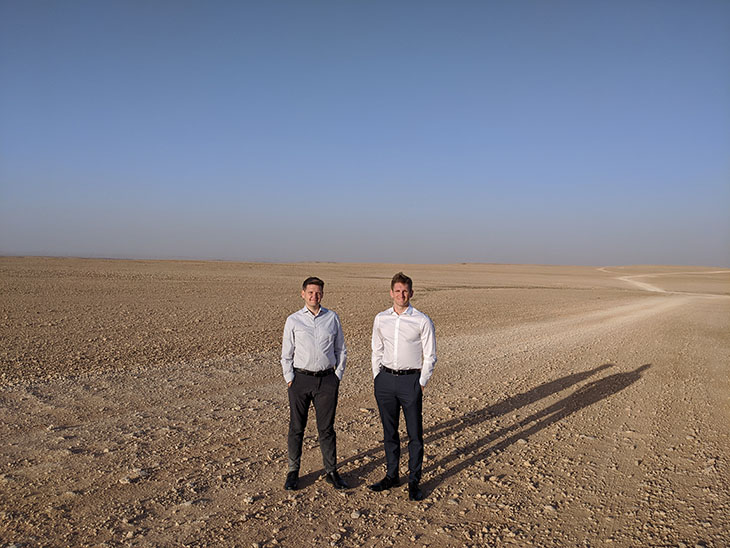 It often takes us long and winding roads to find hidden gems
It often takes us long and winding roads to find hidden gems
We also found that CEOs’ stated expectations for growth might be a signal.
Our next stop
Having spent a month in each – the Philippines, Malaysia, Indonesia, Bangladesh, Pakistan, Thailand, Vietnam and Saudi Arabia – we are departing to the ninth country in our effort to live in 12 emerging markets in 12 months. Stay tuned for... South Africa.
Learn more about our Evli Emerging Frontier Fund
Our recent blogs
A month in Vietnam: Closing the deal
A month in Thailand: Driving three hours to see an empty factory
A month in Pakistan: An altercation at the ministry of finance
A month in Bangladesh: We're investing billions in the world’s best stock market
A month in Indonesia: Offending Trump in Bali
A month in Malaysia: Finding another gem on "Treasure Island"
A month in the Philippines: How active management helped us beat the traffic (and the market)















